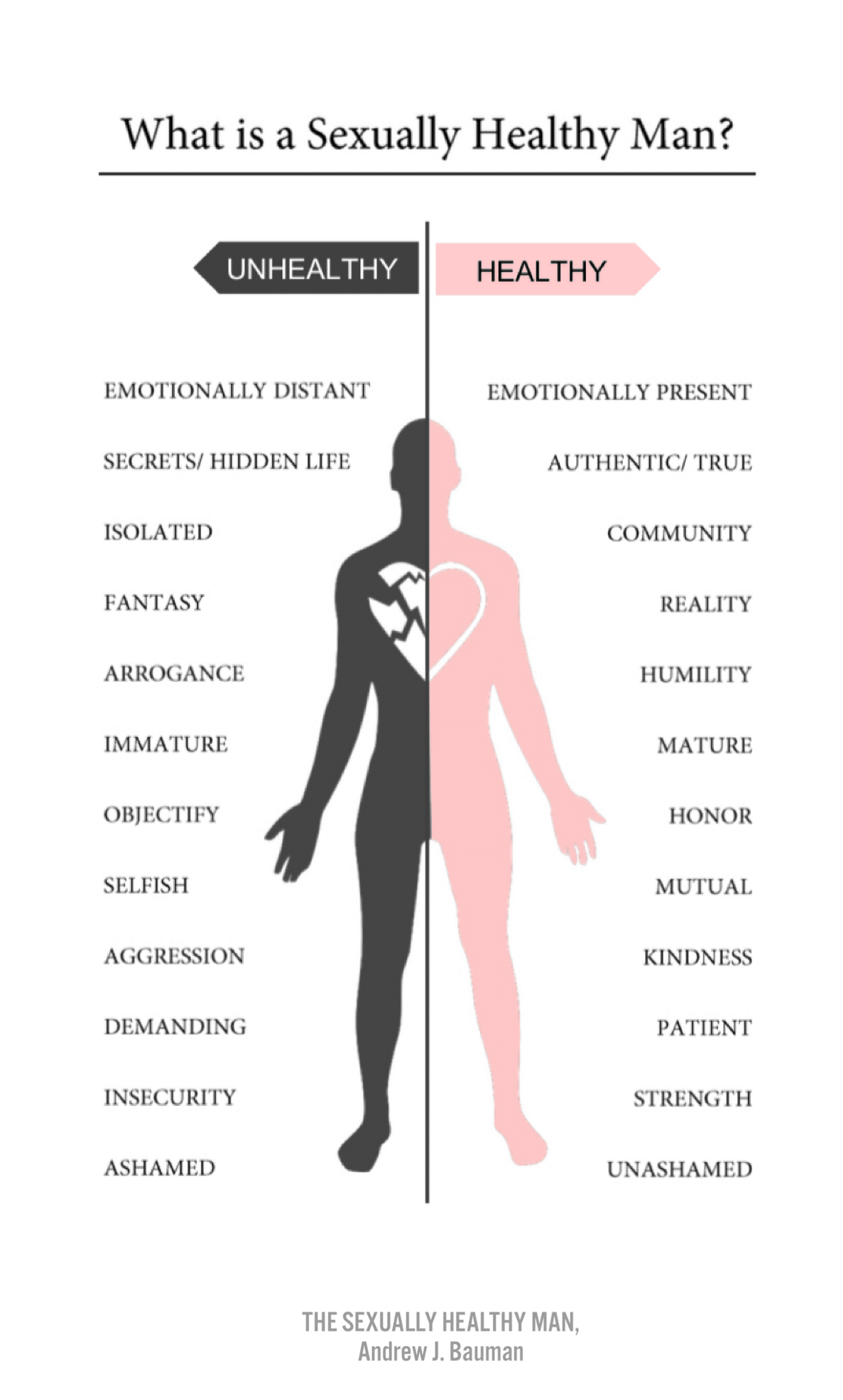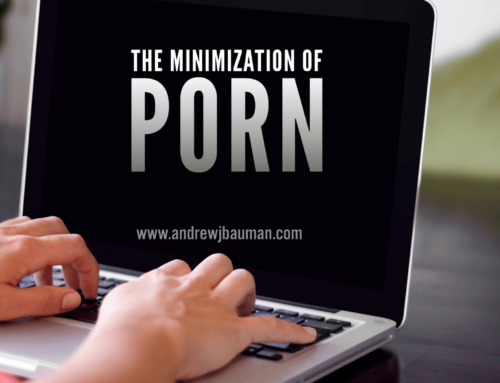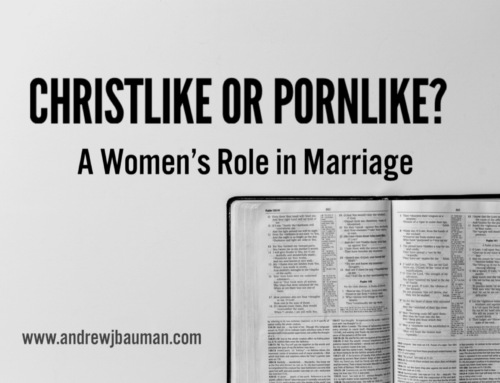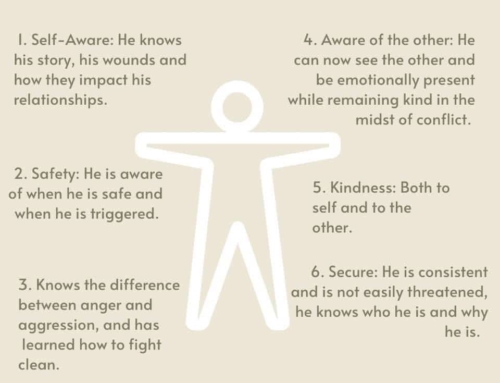This is an excerpt from my new book, The Sexually Healthy Man.

When you review the graph above, what do you feel in your body? Do you feel regret, hope, or maybe longing and desire for something new? Where do you find yourself? Do you see yourself more on the unhealthy or the healthy side? If you have a partner and enough courage, would you be willing to ask them which of these character traits they experience from you? Would you be willing to write about each of these aspects of unhealthy and healthy sexuality, and how they apply to your life? Think about your past, your present, and what you hope for your future. Let’s review these aspects of healthy and unhealthy sexuality together.
EMOTIONALLY DISTANT vs. EMOTIONALLY PRESENT
Simply put, does your partner have your face during intimacy? Are you with them, not just physically, but with the entirety of your being? Do you make eye contact during sex? Do you feel embodied, or do you at times feel you are a bystander to your own sex life?
SECRETS/HIDDEN LIFE vs. AUTHENTIC/TRUE
It is impossible to attain sexual health while you are living with secrets. Telling the truth is vital to genuine intimacy and lasting connection. If you are living a hidden life, the possibility for healthy sexuality is lost, because authenticity is the basis of trust and sexual health. What do you fear will happen if you allow your true self to emerge? You may feel terrified to be fully seen and loved, but that is what you truly need. This fear is normal, as many of us are not accustomed to genuine intimacy. It takes some time to get comfortable with vulnerability, but it is worth it.
FANTASY vs. REALITY
Pornography and other sexually compulsive behaviors feed off of a robust fantasy structure. Fantasy structure is a part of the system of arousal, yet living in unhealthy fantasy takes us away from our partners emotionally, making it impossible to connect with them deeply. As explained in my book, The Psychology of Porn, “Fantasy is an escape from what is real. Whether it be difficult emotions, such as stress, anxiety, or depression, or just the pain that genuine relationship inevitably brings, fantasy relieves those struggles for a moment. While healthy relationships live in the truth, pornography helps bolster a life of fantasy that is difficult to undo. Fantasy brings relief but does not bring restoration.” Do you live in full truth with your partner? Do you honor each other’s scars and stories, or do you require them to attempt to become your porn-star fantasy, something that no human could ever attain?
ARROGANCE vs. HUMILITY
I have never met a sexually healthy arrogant man. True sexual health comes at a cost, and normally that cost is some type of suffering which has produced an authentic humility. A sexually healthy man is humble in the way he gives and receives pleasure, attuned to his partner, and aware of both his glory and his depravity.
ISOLATION vs. COMMUNITY
Sexual dysfunction is bred in isolation. Most of the men I know don’t masturbate to pornography in public, they do quietly and shamefully, either at night when their spouse is asleep, or when they are alone in the bathroom. To be fully known, we must be in communion with others. Community doesn’t just mean accountability, it means bleeding together; it means sharing our deepest shame, greatest fears, and deepest delights. True communion is fully knowing and being fully known by another.
IMMATURE vs. MATURE
Pornography use, secrets, half-truths, and lies are all examples of adolescent behavior. These habits indicate a need to look deeply within yourself and see your immaturity clearly. Ask yourself, “How old do I feel”? What would it mean for you to live into your true age? What parts of your trauma story have stunted your ability to become a mature man, and how can you give that part of yourself tenderness, kindness, and care?
SELFISH vs. MUTUAL
Pornography has taught generations of men to be selfish with their sexuality. In my thirteen years of use, it taught me that sex was about my pleasure, and no one else’s. This conditioning is problematic when a real person is introduced in the context of an authentic sexual relationship, because sexuality up to that point has never involved shared mutuality. Mutual pleasure and mutual service means that both partners get to use their full voice of consent; they get to say, “yes”, “no” or “maybe”, as they learn each other’s bodies and desires.
DEMANDING vs. PATIENT
Building on the foundation of authentic mutuality, we must learn to be patient with each other as we grow in connectedness and listen to each other. Pornography and other forms of toxic, patriarchal masculinity have taught us that real men take what is “theirs”. This has brought about a rise in rape culture and a normalization of male violence against women. Healthy sexuality is about consent and patience as each partner learns how to love more fully.
AGGRESSION vs. KINDNESS
One of the most obvious traits of a sexually healthy man is that of kindness. Kindness toward yourself overflows into kindness toward your partner. Sex is not about meeting pleasure demands or trying to cover your own insecurities by being aggressive. Sexual health requires stepping into deeply rooted masculine kindness that flows out of genuine strength.
INSECURITY vs. STRENGTH
The sexually unhealthy man is an insecure man. These wounded little boys try their hardest to appear big because they feel so small inside. They try to find worth through money, toys, possessions, bullying, aggressive behavior, or the attractiveness of their spouse. These are all different ways of trying to overcompensate for how insecure they feel. Grounded, masculine strength never has to “prove” anything. Strong men know who they are and what they have to offer their partner and the world. Their strength protects and honors their partner, and does not try to gain mastery or power over them.
ASHAMED vs. UNASHAMED
Shame plagues many evangelical men. Some shame is guided by toxic beliefs about sexuality, and some of it is shame masquerading as guilt over living an inauthentic life. Shame and guilt are not the same. Shame says that the core of you is dirty and bad, while guilt speaks to your actions being bad, not your personhood. There is no place for shame in a sexually healthy man. He honors himself and his partner. He has made peace with his darkness and the stories of his past, and he now walks in courage and strength.
OBJECTIFY vs HONOR
The objectification of women has become normative. Many times through pornography use, men develop what I call a “pornographic style of relating” (this concept is explained more fully in my book, The Psychology of Porn) in which men learned how to relate to women from pornography. Sadly, pornography is centered on the objectification of women, making women “less” so that men can feel like they are “more”. This view of women dehumanizes them, making it easier for men to harm them and harder for men to honor them. We must change the way we engage with beauty, standing in awe, and honoring the feminine, which God created and named the summit of all of creation.
Make sure you buy my new book, The Sexually Healthy Man, release date January 2021.





